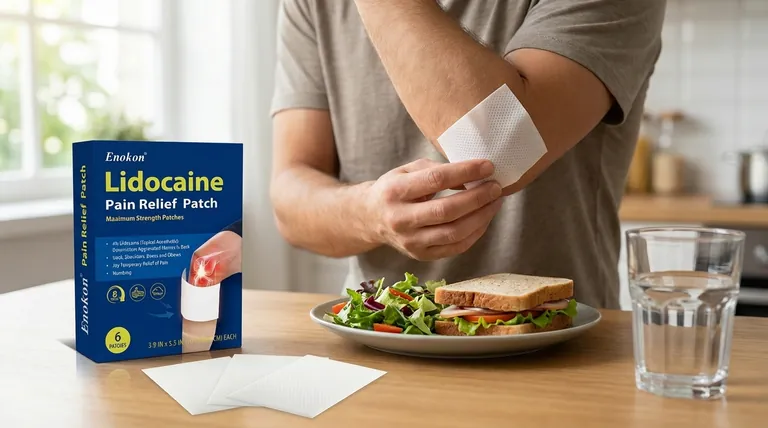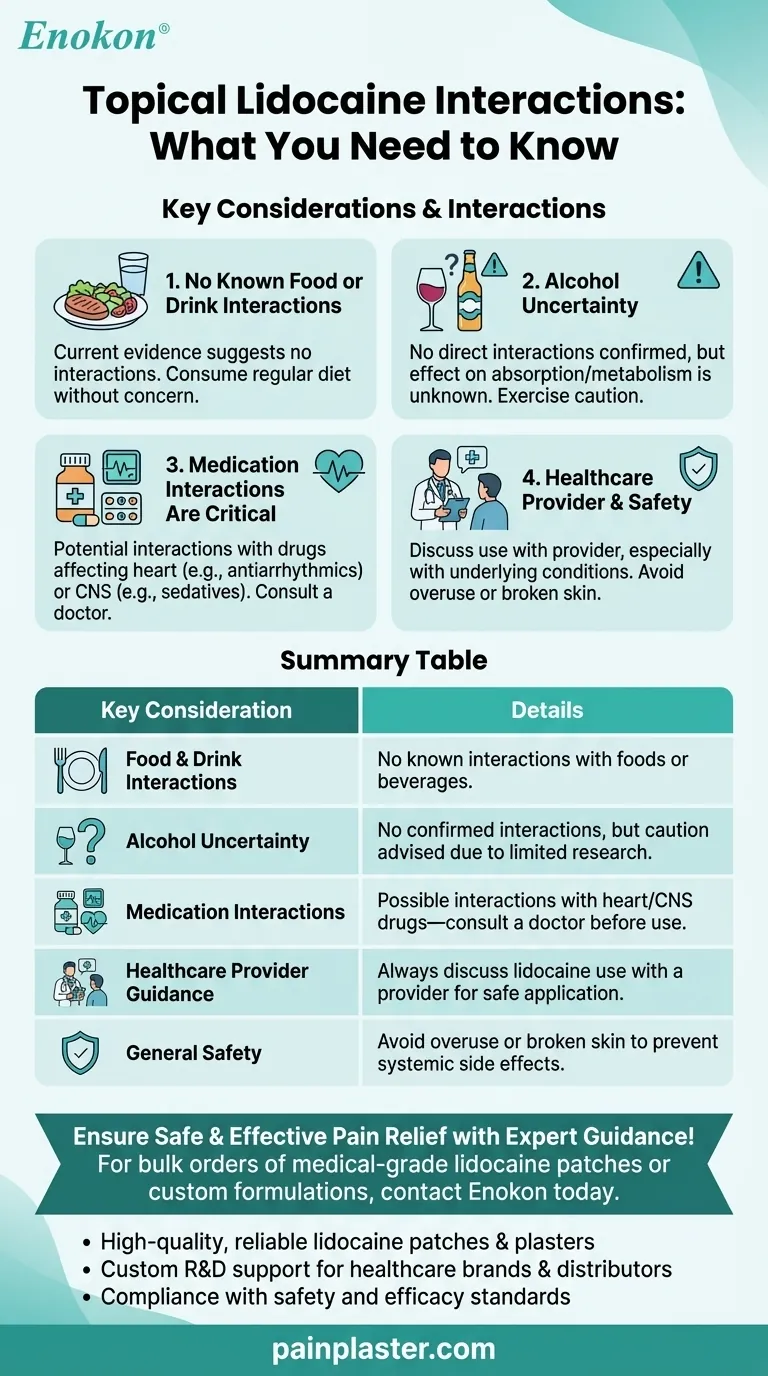Topical lidocaine is commonly used for localized pain relief, and based on current information, there are no known interactions between topical lidocaine and foods or drinks. The effect of alcohol on topical lidocaine remains unclear, but no significant interactions have been documented. However, while food and drink interactions seem minimal, it's important to consider potential medication interactions, particularly with drugs affecting the heart or central nervous system. Always consult a healthcare provider before combining lidocaine with other medications or supplements to ensure safe usage.

Key Points Explained:
-
No Known Food or Drink Interactions
- Current evidence suggests that topical lidocaine does not interact with foods or beverages. This means patients can generally consume their regular diet without concern for altered lidocaine effectiveness or side effects.
-
Uncertainty Regarding Alcohol
- While no direct interactions between alcohol and topical lidocaine have been established, the effect of alcohol on lidocaine absorption or metabolism is unknown. Patients should exercise caution until further research clarifies this relationship.
-
Medication Interactions Are More Critical
- Although food interactions are unlikely, topical lidocaine may interact with certain medications, particularly those affecting the heart (e.g., antiarrhythmics) or central nervous system (e.g., sedatives). Always disclose all medications and supplements to a healthcare provider before use.
-
Consultation with Healthcare Providers
- Even without food interactions, patients should discuss lidocaine use with their doctor, especially if they have underlying health conditions or take other medications. This ensures safe application and minimizes risks of systemic absorption or unintended effects.
-
General Safety Considerations
- Topical lidocaine is considered low-risk for food interactions, but proper application (avoiding excessive use or broken skin) remains crucial to prevent systemic side effects like dizziness or irregular heartbeat.
For those using lidocaine patches or creams, maintaining open communication with healthcare providers helps navigate any uncertainties, particularly when combining treatments or consuming alcohol. These small precautions support both efficacy and safety in pain management.
Summary Table:
| Key Consideration | Details |
|---|---|
| Food & Drink Interactions | No known interactions with foods or beverages. |
| Alcohol Uncertainty | No confirmed interactions, but caution advised due to limited research. |
| Medication Interactions | Possible interactions with heart/CNS drugs—consult a doctor before use. |
| Healthcare Provider Guidance | Always discuss lidocaine use with a provider for safe application. |
| General Safety | Avoid overuse or broken skin to prevent systemic side effects. |
Ensure safe and effective pain relief with expert guidance!
If you or your patients use topical lidocaine, consult a healthcare provider to minimize risks—especially when combining treatments or consuming alcohol. For bulk orders of medical-grade lidocaine patches or custom formulations, contact Enokon today. As a trusted manufacturer of transdermal pain relief solutions, we provide:
- High-quality, reliable lidocaine patches & plasters
- Custom R&D support for healthcare brands & distributors
- Compliance with safety and efficacy standards
Let’s optimize your pain management products together!
Visual Guide

Related Products
- Lidocaine Hydrogel Pain Relief Patch for Pain Relief
- Heating Pain Relief Patches for Menstrual Cramps
- Far Infrared Deep Heat Relief Patches Medicated Pain Relief Patches
- Far Infrared Heat Pain Relief Patches Transdermal Patches
- Natural Herbal Wormwood Patch Pain Plaster
People Also Ask
- For what condition are lidocaine patches approved in the United Kingdom? A Guide to Postherpetic Neuralgia Treatment
- When should someone contact a doctor regarding lidocaine patch use? Ensure Safe Pain Relief
- Is it safe to use lidocaine patches while breastfeeding? Expert Guidance for Nursing Mothers
- How should the treated area be protected while wearing a lidocaine patch? Safety Tips for Effective Pain Relief
- How can you use lidocaine patches for multiple sore spots? A Guide to Safe, Effective Pain Relief















